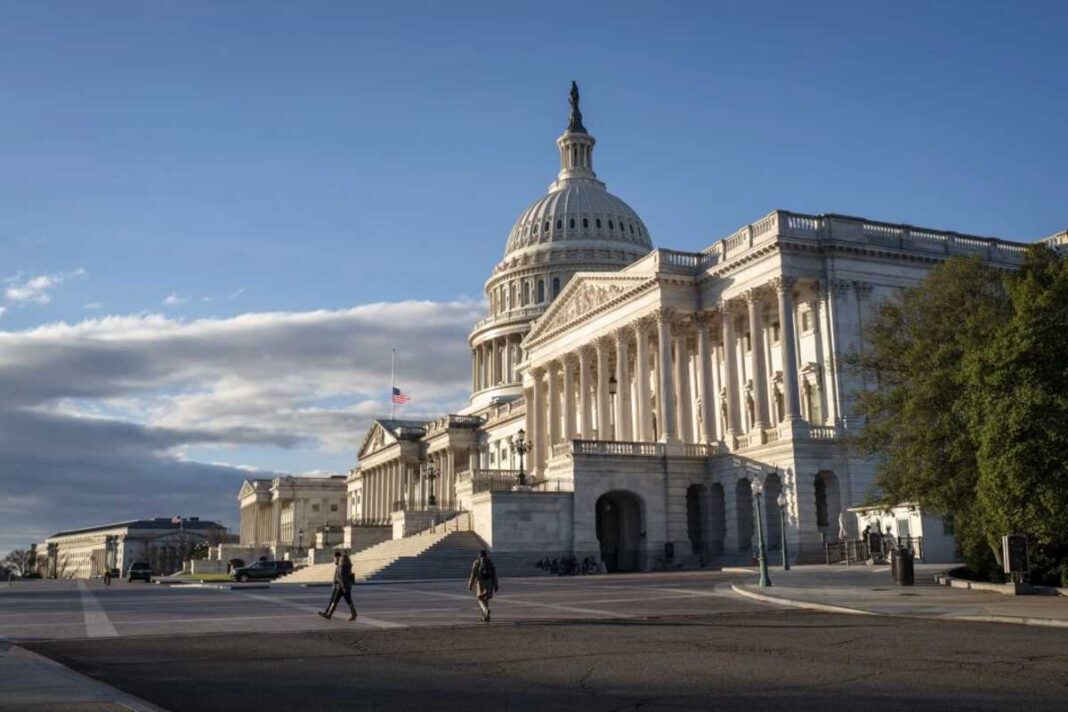House Minority Leader Hakeem Jeffries broke the House floor speech record as Democratic Party leaders vow to campaign on the Trump-backed bill signed on July 3.
Democratic leaders and union officials are preparing to make the Republican-backed budget bill—which passed the House on July 3 and was sent to President Donald Trump to be signed—a centerpiece of their 2026 midterm strategy. They plan to use it to draw contrasts with Trump and the GOP-controlled Congress.
House Minority Leader Hakeem Jeffries (D-N.Y.) concluded a marathon floor speech on July 3 after speaking for eight hours and 44 minutes, breaking (by 12 minutes) the previous record set by then-Minority Leader Kevin McCarthy in 2021 and delaying the vote on the bill but not stopping it from going for a vote. Jeffries began just before 5 a.m. ET in a final attempt to delay the vote and rally public attention to the sweeping GOP budget bill backed by Trump. The vote went ahead later that day.
Jeffries had previously vowed on July 2 that all House Democrats would oppose the bill, and called on four House Republicans to join them in voting it down. Only two House Republicans ended up voting against the bill: Reps. Brian Fitzpatrick (R-Pa.) and Thomas Massie (R-Ky.) The legislation cleared the Senate earlier this week.
“This is the most unpopular bill in over a half a century,” DNC Chair Ken Martin said during a press call on July 3. “A wide majority of Americans do not support what’s in this bill—and as a result, it would be malfeasance of us if we weren’t talking about this nonstop over the course of the next year and a half—and that’s what we’re going to do. We’re going to continue to hang this bill around the necks of all of these Republicans who voted for this disastrous bill, because they’re voting against their constituents.”
In response to a question about how to avoid the GOP changing the message from the bill to other issues that helped Republicans win in 2024 headed into the still distant 2026 midterms, Martin said that discussion of the bill would be “a constant drumbeat” from not only the DNC, but “all of our partners and allies over the course of the next year and a half.”
The bill has been described by GOP leaders as a sweeping package that reduces taxes, restructures safety net programs, and eliminates clean energy incentives. But it also drew opposition from within the party, with objections from both conservative and moderate wings.
By Chase Smith







